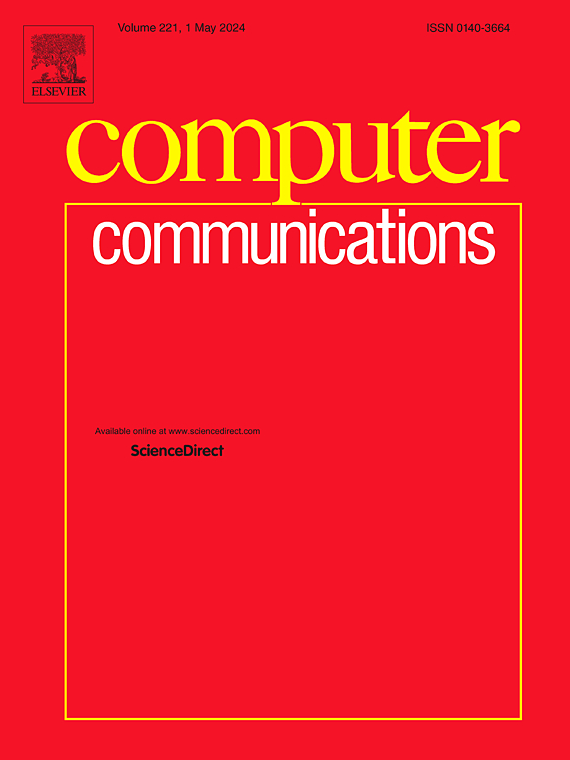一种用于无人机辅助IoAV网络安全通信的匿名和保护隐私的轻量级认证协议
IF 4.3
3区 计算机科学
Q1 COMPUTER SCIENCE, INFORMATION SYSTEMS
引用次数: 0
摘要
随着物联网(IoT)的迅速普及,自动驾驶汽车(AVs)或自动驾驶汽车严重依赖无线网络上的实时数据共享和信息交换。自动驾驶汽车使用传感器、人工智能、机器学习和高级算法来执行各种功能,使用户能够在没有人为干预的情况下操作。由于无人机的灵活性和高机动性,它们可以帮助自动驾驶汽车的操作。然而,安全性和隐私性是主要问题;具体而言,物理捕获的威胁和违反匿名性是实现自动驾驶飞机与无人机之间安全通信的主要障碍。为了解决这些挑战,我们为无人机辅助的自动驾驶汽车互联网(sla - ioav)提出了一种匿名且可证明安全的轻量级认证协议。所提出的协议使用了诸如异或操作、椭圆曲线加密、抗碰撞单向散列和连接等密码原语来确保鲁棒安全性。一项非正式的安全分析发现,SLAP-IoAV对几种已知的攻击是安全的,性能分析表明,该协议比现有的竞争协议具有更少的计算和通信开销。此外,Scyther模拟结果证实不存在安全漏洞。总的来说,我们的协议提供了卓越的安全性和性能,使其非常适合AV行业的实际应用。本文章由计算机程序翻译,如有差异,请以英文原文为准。
An anonymous and privacy-preserving lightweight authentication protocol for secure communication in UAV-assisted IoAV networks
With the rapid proliferation of the Internet of Things (IoT), autonomous vehicles (AVs), or self-driving cars, rely heavily on real-time data sharing and message exchanges over wireless networks. AVs use sensors, artificial intelligence, machine learning, and advanced algorithms to perform various functions, enabling users to operate without human intervention. Owing to the flexibility and high mobility of drones, they could aid in the operations of AVs. However, the security and privacy are the main concerns; specifically, the threat of physical capture and violation of anonymity are the main hurdles for realization of secure communication among the AVs and drones. To address these challenges, we propose an anonymous and provably Secure Lightweight Authentication Protocol for unmanned-aerial-vehicle-assisted Internet of Autonomous Vehicles (SLAP-IoAV). The proposed protocol uses cryptographic primitives such as exclusive-OR operations, elliptic-curve cryptography, collision-resistant one-way hashing, and concatenation to ensure robust security. An informal security analysis found that SLAP-IoAV is secure against several known attacks, and a performance analysis established that the protocol has less computational and communication overhead than existing competitive protocols. Additionally, Scyther simulation results confirm that no security vulnerabilities are present. Overall, our protocol delivers superior security and performance, making it well-suited to real-world applications in the AV industry.
求助全文
通过发布文献求助,成功后即可免费获取论文全文。
去求助
来源期刊

Computer Communications
工程技术-电信学
CiteScore
14.10
自引率
5.00%
发文量
397
审稿时长
66 days
期刊介绍:
Computer and Communications networks are key infrastructures of the information society with high socio-economic value as they contribute to the correct operations of many critical services (from healthcare to finance and transportation). Internet is the core of today''s computer-communication infrastructures. This has transformed the Internet, from a robust network for data transfer between computers, to a global, content-rich, communication and information system where contents are increasingly generated by the users, and distributed according to human social relations. Next-generation network technologies, architectures and protocols are therefore required to overcome the limitations of the legacy Internet and add new capabilities and services. The future Internet should be ubiquitous, secure, resilient, and closer to human communication paradigms.
Computer Communications is a peer-reviewed international journal that publishes high-quality scientific articles (both theory and practice) and survey papers covering all aspects of future computer communication networks (on all layers, except the physical layer), with a special attention to the evolution of the Internet architecture, protocols, services, and applications.
 求助内容:
求助内容: 应助结果提醒方式:
应助结果提醒方式:


